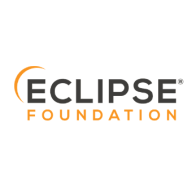

Find out in this report how the two Java Frameworks solutions compare in terms of features, pricing, service and support, easy of deployment, and ROI.
| Product | Market Share (%) |
|---|---|
| Apache Spark | 9.3% |
| Jakarta EE | 17.6% |
| Other | 73.1% |


| Company Size | Count |
|---|---|
| Small Business | 28 |
| Midsize Enterprise | 15 |
| Large Enterprise | 32 |
Spark provides programmers with an application programming interface centered on a data structure called the resilient distributed dataset (RDD), a read-only multiset of data items distributed over a cluster of machines, that is maintained in a fault-tolerant way. It was developed in response to limitations in the MapReduce cluster computing paradigm, which forces a particular linear dataflowstructure on distributed programs: MapReduce programs read input data from disk, map a function across the data, reduce the results of the map, and store reduction results on disk. Spark's RDDs function as a working set for distributed programs that offers a (deliberately) restricted form of distributed shared memory
Jakarta EE is a powerful platform for developing enterprise-level Java applications. It provides a set of specifications and APIs that enable developers to build scalable, secure, and portable applications. Jakarta EE is built on the foundation of Java EE, which has been widely adopted by organizations around the world.
One of the key features of Jakarta EE is its support for distributed computing. It includes APIs for building distributed applications, such as remote method invocation (RMI) and message-driven beans. This allows developers to create applications that can run on multiple servers and communicate with each other seamlessly.
Another important aspect of Jakarta EE is its focus on security. It provides a comprehensive set of security APIs and features, including authentication, authorization, and encryption. This ensures that applications built with Jakarta EE are robust and protected against potential security threats.
Portability is also a major advantage of Jakarta EE. It allows developers to write applications that can run on any Jakarta EE-compliant server, regardless of the underlying operating system or hardware. This makes it easier to deploy and maintain applications across different environments.
In addition, Jakarta EE offers a wide range of APIs and specifications for various enterprise-level services, such as database access, messaging, and web services. This simplifies the development process and allows developers to focus on building business logic rather than dealing with low-level details.
We monitor all Java Frameworks reviews to prevent fraudulent reviews and keep review quality high. We do not post reviews by company employees or direct competitors. We validate each review for authenticity via cross-reference with LinkedIn, and personal follow-up with the reviewer when necessary.